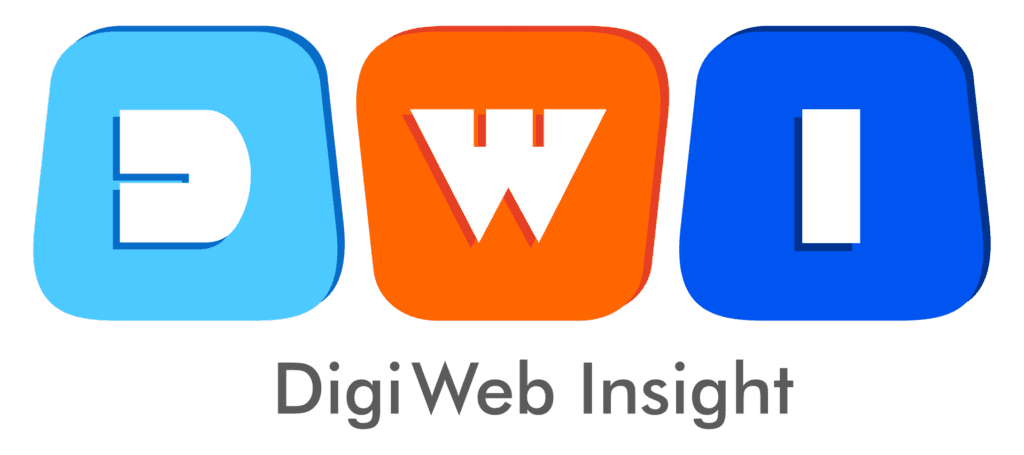The digital landscape of social media is constantly patrolled by algorithms and policy enforcement, and for millions of users and businesses, this can lead to the dreaded Facebook Jail. Whether it’s a 24-hour block on posting, a seven-day ban on commenting, or a permanent Facebook account restriction, the penalty box can severely disrupt personal connection and business operations.
This definitive 2025 guide provides the complete breakdown. We will reveal the seven most common reasons you get locked out and deliver a practical, step-by-step strategy for how to secure your release and protect your digital presence.
🚫 The 7 Common Reasons You’re in Facebook Jail
The term “Facebook Jail” refers to any punitive action taken against an account that limits its functionality, from a temporary feature block (a soft jail) to a full, permanent account disability (a hard jail). Based on our experience with account compliance, these are the primary reasons people and businesses get restricted:
1. Excessive Spamming, Repetitive Actions, and Automation
Facebook’s algorithms are primarily designed to detect and penalize non-human behavior. If your actions look robotic, you will be flagged.
- Mass Activity: Sending too many friend requests, joining a high volume of groups, or sending the same message to multiple users in a short period.
- Rapid Posting: Posting the exact same content, link, or image across multiple groups or pages simultaneously. The platform interprets this as the behavior of a bot, not a human.
- Third-Party Tools: Using automation tools or “bots” for comments, messages, or likes that violate Facebook’s Terms of Service (ToS).
2. Violating Community Standards (Hate Speech & Graphic Content)
This is the fastest route to a hard ban. Facebook takes a zero-tolerance approach to content that promotes violence, hate, or harm.
- Hateful Conduct: Posting content that attacks, threatens, or degrades people based on race, ethnicity, national origin, religious affiliation, sexual orientation, sex, gender, or serious disability.
- Graphic Violence: Sharing images or videos that depict excessive gore, cruelty, or sexual exploitation. This includes non-consensual sharing of intimate images.
- Bullying and Harassment: Repeated, targeted attacks on individuals.
3. Promoting Forbidden or Restricted Goods & Services
For Business Manager and Ad Accounts, policy violations are a common cause of restriction. Meta has strict rules on what can be advertised.
- Prohibited Content: Promoting illegal products/services (drugs, weaponry, counterfeit goods) or discriminatory practices.
- Restricted Content: Advertising specific products without proper targeting or disclaimers (e.g., alcohol, supplements, financial services, dating apps). Not adhering to the strict rules for these categories is a frequent cause of a disabled Facebook Ad Account.
4. Copyright and Intellectual Property Infringement
Sharing content—including photos, videos, and music—that you do not own or have the explicit license to use will lead to a Digital Millennium Copyright Act (DMCA) flag.
- The system uses advanced audio and video matching technology. Posting a popular song in the background of your video without a license is enough to trigger a ban.
- Repeated infringement is often a fast-track to permanent account suspension.
5. Operating a Fake, Unverified, or Multiple Personal Accounts
Authenticity is a core pillar of Facebook’s policy. Using a profile that misrepresents who you are is a severe ToS violation.
- Impersonation: Creating an account pretending to be another person or entity.
- Multiple Profiles: Operating more than one personal Facebook account, which is a violation of the Meta Account Integrity Policy.
- Incomplete Profile: A newly created account that rapidly attempts high-volume activity without a profile picture, friends, or historical activity is immediately flagged as suspicious.
6. Circumvention and Evasion Tactics
This violation is reserved for attempts to bypass enforcement actions, often leading to a permanent, unappealable ban.
- Cloaking: Using techniques that show one version of a link/page to the Facebook reviewer and a different one to the end-user.
- Creating New Accounts to Evade: If your Ad Account is disabled, creating a brand new account and using the same payment information, device, or IP address to try and run the same ads is considered evasion.
7. Repeated or High Volume of User Reports
While a single, incorrect report might not do much, a high volume of user reports from friends, group members, or competitors can trigger an immediate manual review or an automated temporary restriction.
- Users reporting your posts for “misinformation,” “spam,” or “hateful content” repeatedly forces the algorithm to take action, even if the content is later found to be compliant.
🔑 Your Step-by-Step Guide to Secure Your Release (The Appeal Strategy)
Getting out of Facebook Jail requires a systematic, professional, and policy-compliant approach. Do not panic and do not try to “hack” the system—that will only lead to permanent disability.
Step 1: Immediately Locate the Restriction Notice
The moment you suspect you are restricted, you must find the official notice. This is your most important piece of evidence.
- For Personal Accounts: Check your Support Inbox (found in the Help & Support section of your settings). All warnings, violations, and restriction notices are logged here.
- For Ad Accounts/Pages: Go to Business Support Home within your Meta Business Manager. This is where you see the specific policy violation, the affected asset (Ad Account, Page, or Business Manager), and the length of the restriction.
- Action: Do not delete the violating content yet. You must first see the specific reason Facebook provided.
Step 2: Stop All Activity and Understand the Offense
The moment you receive a notice, stop all activity on the affected account and any connected business assets (Instagram, WhatsApp, other Ad Accounts).
| Ban Type | Duration (Typical Range) | Action to Take |
| Soft Ban (Likes/Comments blocked) | 1 hour to 7 days | Wait it out; do not test the limits. |
| Temporary Ban (Posting/Messaging blocked) | 7 to 30 days | Focus solely on a respectful appeal. |
| Permanent Disability (Full account locked) | Indefinite/Permanent | Must appeal within the stated timeframe (often 180 days). |
- Crucial Compliance: Read the specific section of the Facebook Community Standards or Advertising Policies cited in your notice. You cannot appeal effectively without understanding exactly which rule you supposedly broke.
Step 3: Draft a Respectful & Policy-Compliant Appeal
Your appeal is your one chance to communicate with a human reviewer. This is not the time for anger or excuses.
- Be Professional: Use formal business language. Start with a salutation like, “Dear Meta Support Team.”
- State the Error (If Applicable): If you genuinely believe it was a mistake (e.g., an automated system flagged an image incorrectly), explain clearly, “I believe this action was taken in error because my post, which was a news article about X, falls under the public interest exception to the policy on Y.”
- Show Remorse & Compliance (If You Violated): If you know you broke the rule (e.g., running an ad for a restricted product), apologize, admit the mistake, and state the exact change you have made or will make. Example: “I apologize for violating the policy on Restricted Goods (specifically Section 4.1). I have immediately removed the ad and the associated landing page content to ensure full compliance moving forward.”
- Submit Verification: If requested, be prepared to submit a clear, government-issued photo ID to verify your identity. This is common for fully disabled accounts.
Step 4: Follow the Official Appeal Channels
Always use the official forms and links provided by Meta. Do not cold-email a generic support address unless that is the only avenue provided.
- The most direct route is usually clicking “Request Review” or “Disagree with Decision” on the notification you received.
- If you cannot access your account, use the Disabled Account Appeal Form found in the Facebook Help Center.
Step 5: Post-Release and Proactive Compliance (Warming Up)
Once the restriction is lifted (whether automatically or via appeal), your account is still under close scrutiny. You must act like a normal user to rebuild trust.
- Slow Down: For at least one month, drastically reduce the volume of posts, comments, likes, and friend requests.
- Focus on Engagement: Post highly original, non-promotional content that encourages genuine conversation (comments, shares, reactions) rather than links.
- Enable 2FA: Activate Two-Factor Authentication (2FA) immediately. This proves to Facebook that you are a genuine human protecting your account, which is a powerful signal of trustworthiness.
- Review Connections: Disconnect any third-party apps or tools connected to your Facebook account, especially those you no longer use or ones that may be contributing to spammy behavior.
💡 Expert FAQs on Facebook Jail and Account Restriction
Q: How long is Facebook Jail for a first offense?
A: Temporary bans for minor, non-severe violations (like light spamming or a slightly aggressive comment) typically last 24 to 72 hours. Repeat offenses can escalate quickly to 7, 30, or 60 days, or even permanent account disability. Ad account bans are often permanent upon the second offense.
Q: Is it possible to appeal a permanent Facebook account restriction?
A: Yes, but time is critical. Facebook typically gives you 180 days from the date of the ban to submit a formal appeal and provide identity verification. If the restriction is for severe violations like hate speech or child exploitation, the ban is generally final and unappealable.
Q: Should I delete the content that got me restricted?
A: If you are certain the content violated policy and you have already secured the violation notice (Step 1), then yes, you should delete it before appealing. Deleting the content demonstrates to the reviewer that you have corrected the violation and are committed to complying with the platform’s rules.
By understanding the rules of the road and following a calm, structured appeal process, you maximize your chances of securing your release and keeping your account safe from future restrictions.
Would you like me to elaborate on the specific compliance requirements for any of the 7 reasons, such as running compliant Facebook Ads?
Related Services
- SEO Company USA — Boost national visibility with expert SEO strategies.
- Web Design & Development — Build fast, conversion-optimized websites that Google loves.
- PPC Marketing (Pay-Per-Click) — Drive immediate, high-intent traffic for quick ROI.
- Social Media Marketing — Build brand authority, community, and lasting customer loyalty.

